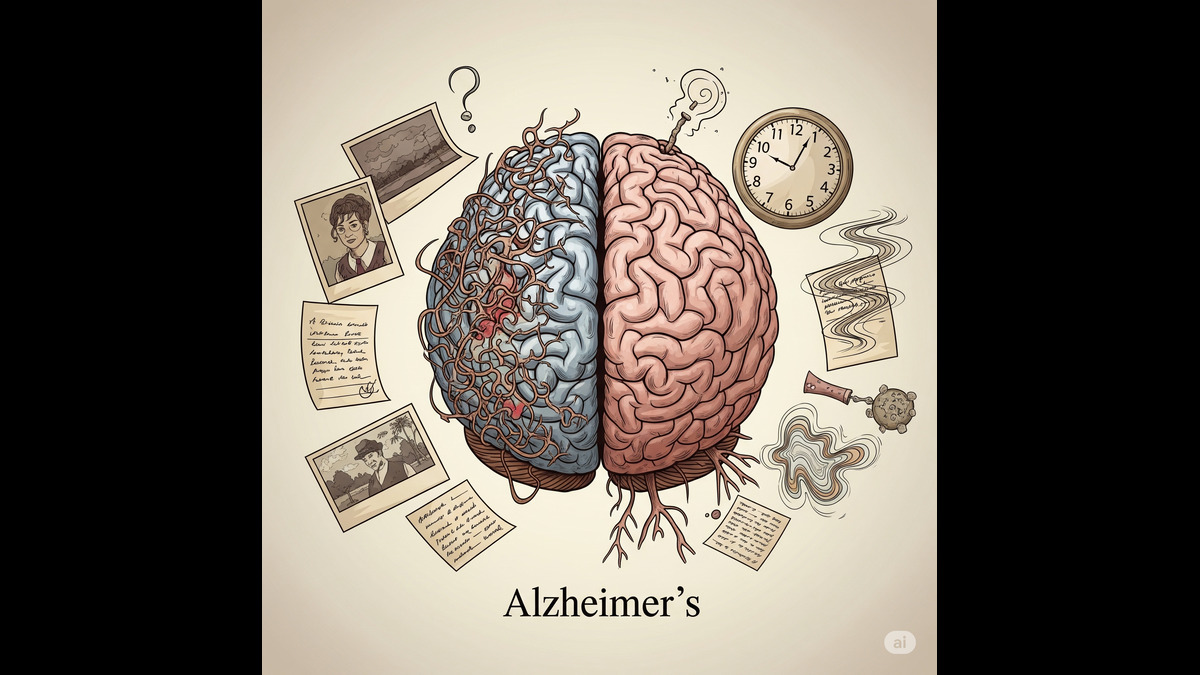Alzheimer’s disease, often thought to be a condition of old age, can begin far earlier than most people realise and the signs aren’t always as obvious as memory loss. With rising stress levels, lifestyle diseases, and increasing life expectancy, the burden of Alzheimer’s in India is expected to climb sharply in the coming decades. Despite this, many people remain unaware of its early warning signs, confusing them with routine forgetfulness or age-related decline.
Firstpost spoke to Dr Pooja Anand, Associate Consultant – Neurology at Paras Health (Gurugram) to shed light on how Alzheimer’s differs from normal aging, the red flags to watch for and how prevention can start well before retirement age.
What exactly is Alzheimer’s disease, and how is it typically identified in its early stages?
Alzheimer’s disease is a progressive neurodegenerative disorder that primarily impairs memory and cognitive function. In its early stages, it often manifests as subtle memory lapses such as forgetting names or recent events—that gradually become more pronounced. These changes go beyond ordinary forgetfulness and begin to interfere with daily life and routine functioning. Diagnosis typically involves clinical evaluations, cognitive testing, brain imaging, and in some cases, biomarker testing.
How does Alzheimer’s differ from normal age-related memory loss or forgetfulness?
It’s important to distinguish Alzheimer’s from normal aging. Occasional forgetfulness—like misplacing keys or struggling to recall a name but remembering it later—is common with age. However, Alzheimer’s involves persistent memory loss, confusion, and difficulty with reasoning or problem-solving. People may get lost in familiar places or have trouble following conversations—warning signs that extend beyond normal aging.
At what age does the risk of developing Alzheimer’s disease begin to significantly increase?
The risk of Alzheimer’s rises significantly after the age of 65. That said, it’s not exclusively a disease of old age. Early-onset Alzheimer’s, though rare, can appear in individuals as young as their 40s or 50s. As age is the strongest risk factor, cases rise sharply among people in their 70s and 80s.
What are some early warning signs or red flags that people should look out for in Alzheimer’s or other forms of dementia?
Early warning signs include memory loss that disrupts daily life, trouble completing familiar tasks, confusion about time or place, and difficulty understanding visual images or spatial relationships. Changes in mood, personality, or social withdrawal can also be indicators. Persistent or worsening symptoms should prompt further medical assessment.
What are some common myths or misconceptions surrounding Alzheimer’s disease?
A common myth is that Alzheimer’s is simply part of normal aging—which it is not. Another misconception is that only the elderly are affected, when in fact early-onset cases do exist. There’s also a belief that nothing can be done after diagnosis. In reality, early intervention, appropriate support, and available treatments can help manage symptoms and improve quality of life.
How much of a concern is early-onset Alzheimer’s, and how frequently does it occur compared to cases in older adults?
Early-onset Alzheimer’s is relatively uncommon, accounting for 5–10% of all cases. However, it is particularly concerning as it strikes during an individual’s working years and can be more difficult to diagnose due to its unexpected timing. In some cases, the disease also progresses more aggressively, making early detection and treatment crucial.
Does the treatment approach differ between early-onset and late-onset Alzheimer’s patients?
Core treatment strategies—managing symptoms, slowing disease progression, and supporting patients and caregivers—are generally the same. However, early-onset patients often face additional challenges related to employment, finances, and parenting, requiring specialised psychosocial support and care planning tailored to their unique circumstances.
Is there evidence linking cardiovascular health—like heart disease or hypertension—to a higher risk of Alzheimer’s, especially among younger adults in India?
Yes, growing evidence suggests a strong link between cardiovascular and brain health. Conditions like hypertension, diabetes, and obesity—which are increasingly common among younger adults in India—can raise the risk of cognitive decline. Poor cardiovascular health can reduce blood flow to the brain, which may contribute to Alzheimer’s and other dementias over time.
What lifestyle habits or preventive measures can individuals adopt to reduce their risk of developing Alzheimer’s disease later in life?
A brain-healthy lifestyle can play a major role in prevention. This includes regular physical exercise, a balanced diet rich in fruits, vegetables, and healthy fats (such as the Mediterranean diet), mental stimulation, good quality sleep, and social engagement. Managing stress, avoiding smoking, and controlling blood pressure and blood sugar are also key. In short, what benefits the heart also benefits the brain.


)

)
)
)
)
)
)
)
)



